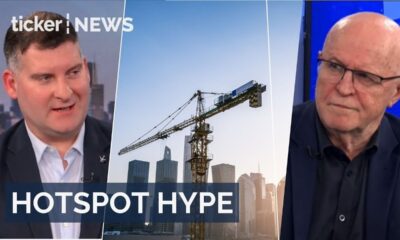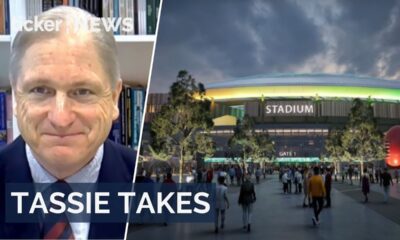Money
Experts unveil key investment strategies for 2025
Dr. Steve Enticott advises young professionals to diversify investments and start early for smarter investing in unpredictable markets.

Money
Stocks rally ahead of Thanksgiving as markets log four days of gains
Markets gain momentum ahead of Thanksgiving, with the Dow up 388 points and Oracle rising 4% amid investor optimism.
Money
Dow surges 500 points amid rate cut optimism
Dow jumps 569 points on fresh hopes for December rate cut and AI market optimism
Money
Gold prices surge as Central Banks buy big, but risks grow ahead
Gold prices surge as central banks increase demand; risks include a stronger dollar and rising interest rates.
-



 News4 days ago
News4 days agoAustralia’s fastest-growing property markets revealed
-



 Ticker Views4 days ago
Ticker Views4 days agoSpace debris could sabotage Google’s next big AI breakthrough
-



 News3 days ago
News3 days agoEU launches antitrust probe into Meta over WhatsApp AI policy
-



 News3 days ago
News3 days agoTasmania AFL team confirmed: Macquarie Point stadium legislation passes
-



 News4 days ago
News4 days agoAustralia warned of major electricity price surge without faster renewable rollout
-



 Shows3 days ago
Shows3 days agoAccessibility gaps in cybersecurity
-



 News4 days ago
News4 days agoImmigration crackdown escalates tensions In New Orleans
-



 Leaders3 days ago
Leaders3 days agoExperts question social media ban’s effectiveness for youth








